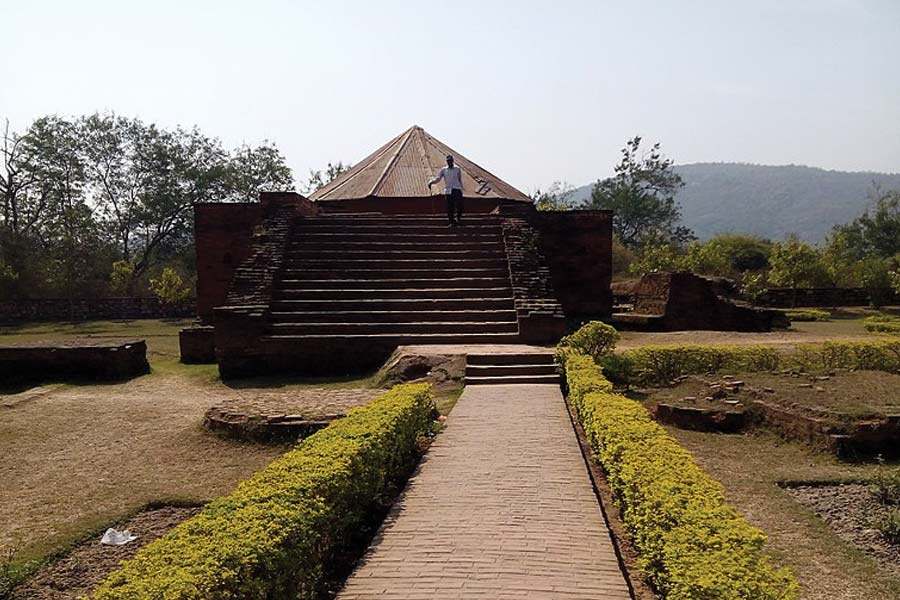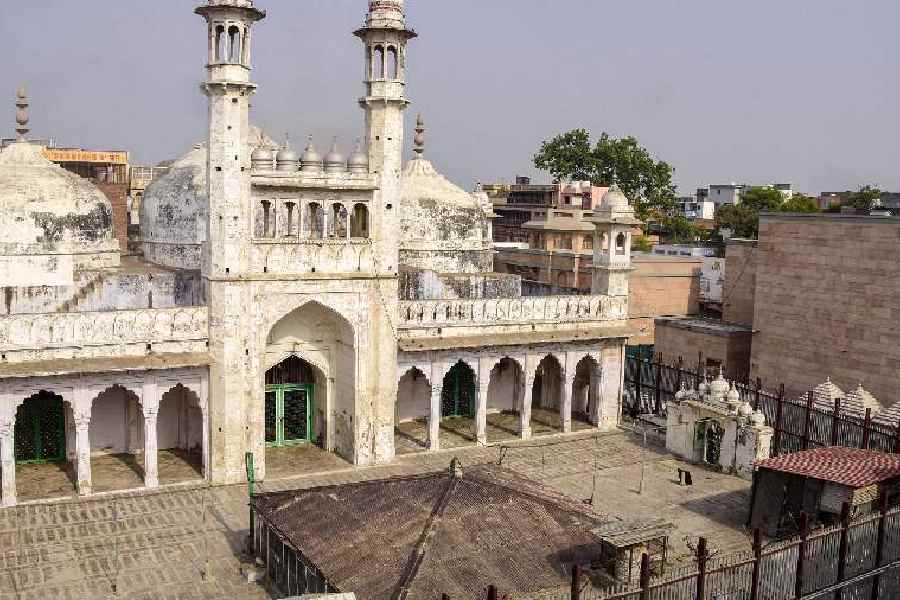The Archaeological Survey of India (ASI) has decided to initiate conservation efforts at Maniyar math, an ancient structure belonging to the Gupta period, located in Rajgir in Bihar's Nalanda district.
Officials said an ASI will soon start conservation work at the site to give a fresh lease of life to the ancient structure.
Located almost at the centre of the old city of Rajagirha, Maniyar math is a mysterious place of worship believed to be dedicated to Naga Shilbhadra and has also been a Buddhist stupa sometime in the past. The cylindrical stupa now serves as a wishing well for the locals where they throw money and offerings to the Snake god and wish for their happy life.
"We will soon take up core conservation of the math. Our focus will be on ensuring that the originality of the structure remains intact", Goutami Bhattacharya, Superintending Archaeologist (ASI, Patna circle) told PTI.
The ASI recently completed core conservation work at Mahadev temple in Rajgir, she added.
"The minor structures at Maniya Math, like altars, platforms shrines, etc, were constructed probably for religious and ritual purposes related to serpent worship. It is a cylindrical temple. It is said to be the temple of Maninag, the deity of the Rajgriha. In the Pali texts, it has been called Manimala Chaitya, while in the Mahabharata there is mention of the Maninag temple. From the art style of the images, this structure seems to be of the Gupta period", said Bhattacharya.
"We also completed core conservation work at Jarasandha's Baithaka, located in Rajgir, she said.
According to archaeologists Magadh's great king Jarasandha's capital was Rajgir. According to the Mahabharata, this is where Bhima fought Jarasandha and Bhima ripped apart Jarasandha's body into two and threw it in two opposite directions to prevent it from rejoining and hence successfully killing Jarasandha in the process.
The National Monuments Authority (NMA) recently released draft heritage bye-laws for centrally protected monuments --ancient structures and other monuments/remains within the areas enclosed and surrounded by the ancient protected walls in Rajgir (Nalanda) in Bihar for their conservation and periphery development.
The protected site in Rajgir abounds a number of monuments and ancient remains which are mostly ruined temples and stone structures that include: Jarasandh ka Akhara’ (battleground), Bimbisara jail (prisoner's house), Jaina shrine, Mahadeva temple, Son Bhandar cave, Maniyar math, Jivakamravana (monastery/ancient hospital), Chariot wheel mark and shell characters, newly excavated stupa, etc.
The monuments in Rajgir are mostly made of Mauryan bricks, stone rubble, mud mortar, and brick jelly. The draft heritage bye-laws have been released under section 20 (E) of the Ancient Monuments and Archaeological sites and remains (AMASR) Act, 1958 on the basis of a field survey conducted by the ASI (Patna circle).
Except for the headline, this story has not been edited by The Telegraph Online staff and has been published from a syndicated feed.











